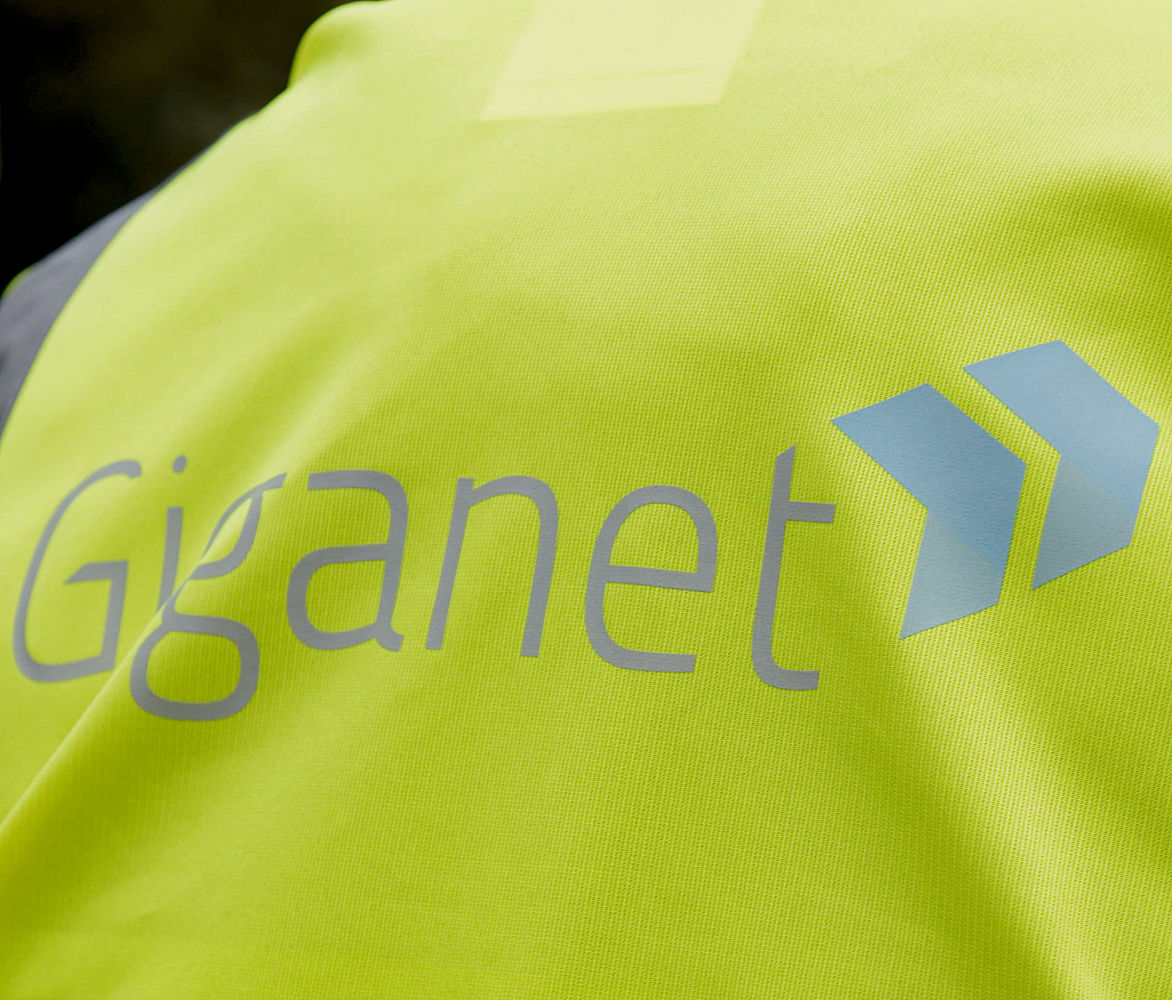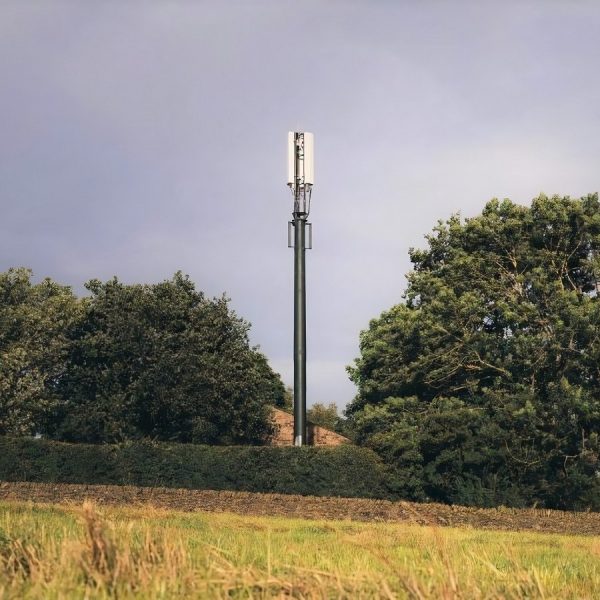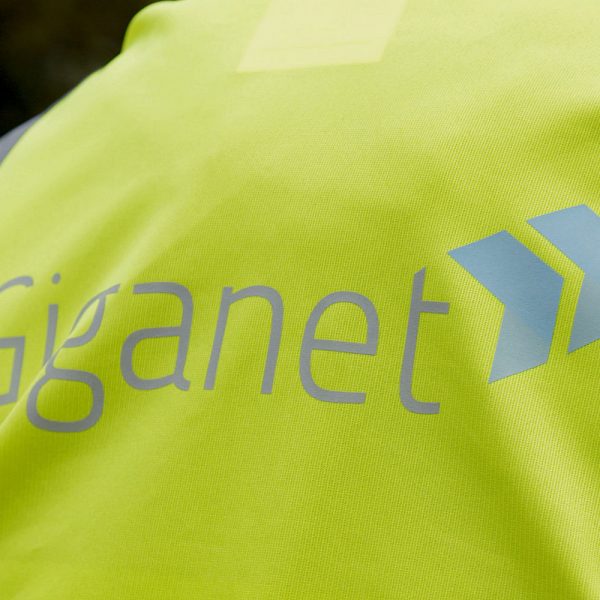UPDATE5 Ofcom in Huge Shake-up of Openreach and UK Broadband, if BT Agree
A framework for the next decade of UK telecoms and broadband regulation has today been set out by Ofcom, which will see Openreach improve service quality, become more independent and give rival ISPs more access to their cable ducts. But the regulator has yet to reach a solid agreement with BT and a split is still on the table.
Naturally some of BT’s most outspoken critics, such as TalkTalk, Sky Broadband and Vodafone, will be displeased if not surprised to learn that the telecoms regulator did not push forward with the option of completely splitting Openreach, BT’s network access division, from the operator’s control. On the other hand Ofcom has managed to set out some major changes, not least to Openreach’s governance structure, and this may deliver much of what BT’s competitors desire.
The proposed deal aims to make Openreach more accountable and independent, which is to be partly achieved through the adoption of a new board that would also include several independent directors (jointly appointed by BT and Ofcom).
The new board will have control over Openreach’s budget and strategy, although BT has yet to agree with Ofcom over the need for Openreach to also become a “legally separate company” and for Openreach to have confidential discussions with its customers without oversight by BT (further details below).
However the regulator warns today that if BT fails to reach an agreement on these sticking points then they will “reconsider whether BT and Openreach should be split into two entirely separate companies, under different ownership.”
Ofcom believes that its proposal will “provide Openreach with the greatest degree of independence from BT Group that is possible without incurring the costs and disruption – to industry and consumers – associated with separating the companies entirely.”
Sharon White, Ofcom Chief Executive, said:
“We’re pressing ahead with the biggest shake-up of telecoms in a decade, to make sure the market is delivering the best possible services for people and business across the UK.”
Openreach are generally responsible for maintaining, managing access to and upgrading BT’s national telecoms and broadband networks across the United Kingdom, which they’ve been required to do on a “functionally separate” basis since Ofcom’s last Strategic Review in 2005.
By contrast the most recent Strategic Review, which posted its initial recommendations in February 2016 (full summary), found “evidence” to show that Openreach “still has an incentive to make decisions in the interests of BT, rather than BT’s competitors, which can lead to competition problems“.
Ofcom also said that “other telecoms companies have not been consulted sufficiently on investment plans that affect them.” Since then a recent cross-party inquiry has further accused BT of not investing enough into its infrastructure (here) and the regulator supports the view that BT has been under-investing by “hundreds of millions of pounds“.
BT has of course denied the accusations of under investment and point to their plan for deploying 300Mbps G.fast broadband technology to 10 million UK premises by 2020, with “most of the UK” likely to be done by 2025. On top of that they aim to roll-out 1Gbps FTTP to 2 million UK premises by 2020, but critics say this isn’t enough and that they should be doing much more FTTP instead of cheaper hybrid-fibre G.fast.
So far Ofcom has already proposed a series of changes to balance the market, such as requiring Openreach to give rivals better access to its cable ducts and poles (details), a more independent governance structure for Openreach, tougher minimum service requirements and better information sharing.
Easily the biggest challenge is over the issue of governance, with Ofcom hinting that Openreach could “become a ring-fenced, ‘wholly-owned subsidiary’ of BT Group, with its own purpose and board members,” which was strongly opposed by BT and an agreement has yet to be done. In that sense today’s proposal represents BT’s final warning.
Highlights of Today’s Proposed Deal
* Openreach to become a distinct company.
Openreach should be a legally separate company within BT Group, with its own ‘Articles of Association’. Openreach – and its directors – would be required to make decisions in the interests of all Openreach’s customers, and to promote the success of the company.* Openreach to have its own Board.
The new Board should have a majority of non-executive directors, including the Chair. These non-executives should not be affiliated to BT Group in any way, but would be both appointed and removed by BT in consultation with Ofcom.* Executives accountable to the new Board.
Openreach’s Chief Executive should be appointed by, and accountable to, the Openreach Board – not BT Group. The Chief Executive would then be responsible for other executive appointments. There should be no direct lines of reporting from Openreach executives to BT Group, unless agreed by exception with Ofcom.* Greater consultation with customers.
Openreach would be obliged to consult formally with customers such as Sky and TalkTalk on large-scale investments. There should be a ‘confidential’ phase during which customers can discuss ideas without this being disclosed to BT Group.* Staff to work for Openreach.
Ofcom’s principle for the new model is that people who work for Openreach should be employees of the new company, rather than BT Group. This would prevent any real or perceived conflict of interest, and allow Openreach to develop its own distinct organisational culture.* Openreach to own assets that it already controls.
Openreach should own its physical network. This would allow the Openreach Board to make decisions that depend on investing in, and looking after, Openreach’s assets. There may be costs in transferring assets or people to Openreach, which would need to be mitigated.* A separate strategy and control over budget allocation.
Openreach should develop its own strategy and annual operating plans, within an overall budget set by BT Group.* Independent branding.
Openreach should have its own brand, not affiliated with BT Group, to help embed the organisational culture of a distinct company.
One of the key questions in all of this is whether or not the changes will truly make the UK’s market for broadband connectivity more competitive, innovative, accessible and fair. The regulator is clearly trying to encourage more competition for BT at the infrastructure level, albeit without breaking BT itself into pieces, but even this won’t be enough to silence some of their fiercest critics.
Similarly not all of Ofcom’s ideas have been given a warm welcome by BT’s rivals (e.g. the semi-separate Dark Fibre proposal) and it may take a fair few years before we can truly gauge whether or not the scale of competition has significantly improved beyond existing levels of growth via ISPs like Gigaclear, Cityfibre, Hyperoptic and others. Meanwhile Sky has already said that it has no plans to build their own fibre optic network (here) and TalkTalk’s aspiration to deliver FTTP to 10 million UK premises continues to lack a firm strategy and financial foundation.
Elsewhere some of the measures, such as the new requirement for Openreach to consult formally with customers such as Sky Broadband and TalkTalk on large-scale investments, might potentially slow down the introduction of new products and services.
In the end Ofcom has attempted to balance a multitude of competing interests in what remains a highly complicated market. No one solution will deliver the magic bullet that people expect and that’s particularly true for rural areas, which with a few exceptions (e.g. B4RN, Gigaclear) will always be stuck at the back of the pack due to the high cost of commercial upgrades.
Suffice to say that we might well be back to this question again in another 10 years’ time, but in the meantime we can at least look forward to further service quality improvements, new systems for consumer compensation following major faults and an ever expanding choice of alternative broadband networks. Meanwhile BT faces an agonising week, with Ofcom attempting to force through some major changes that they clearly won’t enjoy.
A Government (DCMS) Spokesperson told ISPreview.co.uk:
“Nine out of ten homes and businesses now have access to superfast broadband, but our goal is to make sure the UK builds the right infrastructure to maintain our position as a world leading digital nation.
We are clear that a more independent Openreach is needed to benefit consumers and the UK’s digital infrastructure. We are concerned that BT’s proposals do not go far enough and think it is right that full structural separation remains an option.
Swift and clear action is needed to give certainty to consumers, industry and investors in the UK’s broadband infrastructure, and which delivers rapid improvements in the level of investment and service.”
Ofcom are seeking views on the plans outlined today by 4th October 2016. In the meantime they’re also working to develop stricter minimum requirements for Openreach to repair faults and install new lines more quickly (a statement on this will follow later this year). Ofcom also intend to publish new performance tables from next year that will enable consumers to compare ISPs by quality of service over a range of measures.
Finally, the regulator has published an update on their earlier proposed Cable Duct and Pole Access product (here), which Openreach have of course already started to trial (here). However this is perhaps less of an update and more of a summary of what the product aims to deliver.
UPDATE 8:09am
Both BT and Sky have given their response.
Jeremy Darroch, Sky’s Group Chief Executive, said:
“Today’s proposal to create a legally separate Openreach is a step in the right direction, although falls short of the full change that would have guaranteed the world-class broadband network customers expect and the UK will need.
In particular, leaving Openreach’s budget in the hands of BT Group raises significant questions as to whether this will really lead to the fibre investment Britain requires.
At the end of the day, Ofcom’s changes will only work if they deliver better outcomes for customers.
It’s now important that the changes Ofcom have mandated today are implemented rapidly, fully and without dilution. We are encouraged by Ofcom’s stated commitment and willingness to use its powers to hold BT’s feet to the fire.”
Gavin Patterson, CEO of BT Group, said:
“The UK is the most digitally advanced nation in the G20 and further investment is required if it is to keep and extend that lead. That’s why we are poised to invest a further six billion pounds in our UK networks over the next three years”.
We have listened to Ofcom and industry and are introducing significant changes to meet their concerns. These changes will make Openreach more independent and transparent than it is today, something both Ofcom and industry have requested.
Openreach is committed to delivering better service, broader coverage and faster speeds and these changes will enable it to do just that. Our proposals can form the basis for a fair and sustainable regulatory settlement and we believe they can also enable Ofcom to bring its Review to a speedier conclusion.
Proportionality has to underpin any regulatory solution and we believe our proposals are a bold and appropriate response to the concerns outlined by Ofcom and others. We have considered the more extreme solutions proposed by others but they would be overly complex, disproportionately costly and time consuming to implement. They would also undermine Openreach’s ability to invest and create years of uncertainty.”
Interestingly BT has set out a rough summary of its own voluntary proposal and it notes that “elements” of this have been welcomed by Ofcom above, although we know that BT has not yet been able to agree on the demand for Openreach to become a “legally separate company” and for it to have confidential discussions with its customers without oversight by BT.
BT believes its counter offer would help the UK to remain “the leading digital economy in the G20” by investing a further £6bn in its fixed and mobile/EE networks over the next three years, which partly reflects their roll-out of 4G, G.fast and more FTTP connectivity. Here’s roughly what Openreach has proposed.
Openreach’s Voluntary Proposal
* “More independent governance, with a responsibility to serve all customers equally”
BT will establish an Openreach Board as a board committee of BT plc, BT’s main operating company. It will have a majority of independent members, including the Chair, all to be appointed in consultation with Ofcom. The Board will be accountable for Openreach’s strategy and operational delivery. The Openreach CEO will be accountable to this Board and will report into the BT Group Chief Executive.An obligation for Openreach to serve all its customers equally will be included in the Articles of Association of BT plc. This will supplement the legal obligations set out in the current regulatory Undertakings and strengthen Openreach’s purpose to serve all of its customers equally.
* “Increasing Openreach’s autonomy over budget and decision making”
Openreach and its Board will enjoy a high level of autonomy. Openreach will produce Annual Operating and Medium Term Plans setting out its budgetary, strategic and operational objectives. The Openreach Board and CEO will also control how they deploy capital, within the overall budget agreed with the BT Board. This is in keeping with its wider corporate responsibilities and its legal duties as a public company* “Improving Openreach’s approach to consultation with customers”
A formal three stage process will be introduced whereby industry will be consulted in advance on substantial investment decisions and the development of new products. This process will include an early stage during which Openreach can engage with its communications provider customers on a confidential basis.* “Enhancing Openreach’s operational capacity”
Openreach will have access to sufficient capabilities and resources to make its own decisions and run its own operations.
UPDATE 8:32am
Statements from market analyst Ovum and Cityfibre have also been received.
An Ovum Spokesperson said:
“In many ways, a voluntary agreement between Ofcom and Openreach, which is backed by the rest of the industry, would achieve more than years in court and a forced enhanced model of separation could. Many of the things proposed by Ofcom, and that are being offered by BT, could be enacted within months. Attention and money could then turn to getting on with delivering what this review is ultimately all about – making sure Britain has the broadband infrastructure fit for the next decade.
Nevertheless, for some, only full structural separation will be enough and it is important to note that Ofcom have kept this option on the table should its proposed model not deliver. Given the enormous costs and uncertainties, coupled with the weight of evidence, for Ofcom to proceed with structural separation now would be a disproportionate response, even if it could be practically delivered.”
Mark Collins, Cityfibre’s Director Strategy & Policy, added:
“Fundamentally, today’s proposals do not address Ofcom’s key objectives of reducing the country’s dependence on Openreach and encouraging essential investment in fibre. Whilst correctly identifying Openreach as the principal source of the industry’s dysfunction, it is hypocritical of Ofcom to focus on a restructured Openreach as a panacea.
Further debate and navel-gazing as to the appropriate structure of BT will continue to create a period of uncertainty at a time when the industry needs clarity, direction and competitive investment. Openreach has a critical role to play, but it is not prudent to entrust them with sole responsibility for our digital future.
CityFibre has proven its commitment to delivering future-proof digital infrastructure across the UK through its significant investment in dark fibre assets. Unconstrained by the ongoing regulatory debate, CityFibre has the financial flexibility and independence to rapidly deliver the fibre infrastructure, innovation and challenger ethos essential to meet the UK’s future digital needs.”
UPDATE 8:55am
Now it’s TalkTalk’s turn.
Dido Harding, CEO of TalkTalk Group, said:
“The creation of a legally separate Openreach is a step in the right direction, but we must not forget the history of the organisation. The intention ten years ago was to create a functionally separate division that served all customers equally, but that is far from what happened. The lack of clear rules and responsibilities meant that BT was (according to Ofcom) able to make £4 billion in excess returns in a decade, and I fear that we’re repeating the mistakes of the past.
Legal separation still means that a highly complex web of regulation, and BT has proven itself expert at gaming this system. There is nothing to suggest they will not continue to do so in the new system. Structural separation is cleaner, with less red tape – and removes BT’s ability to exploit loopholes in the regulation. In taking one cautious step forward, I fear Ofcom may in practice have taken five steps back.
However we should remember this is just a consultation. Now is the time for the country to make their voices heard, and we are going to help them do that over the course of the next few months.”
UPDATE 9:50am
Here’s one from the founder of the cross-party British Infrastructure Group (BIG).
Grant Shapps MP said:
“Ofcom’s continuing reluctance to act condemns hundreds of thousands of people to the slow lane of internet connections, meaning it takes longer to access information, download a movie or run a business from home.
By now Ofcom should appreciate that high speed broadband is the fourth utility which no modern household should be without.
You have to wonder how many times BT Openreach has to fail the public before the regulator acts. The idea of one more chance is being stretched to its limit while ordinary families and British businesses continue to suffer through poor or no super-fast broadband.”
UPDATE 10:50am
Entanet has chimed in with some criticism.
Neil Watson, Entanet’s Head of Service, said:
“Ofcom’s chief executive, Sharon White, said that splitting Openreach off from BT completely – as we and many others in the industry have called for because we believe it’s the only way to ensure free and fair competition – would take too long. This sounds like a bit of a cop-out. It remains to be seen just how ‘independent’ Openreach becomes while it is still a division within the BT Group.
If there are improvements to responsiveness and service levels, it will be most welcome. But that’s a big ‘if’ in our view. For years, ISPs, CPs and customers have had to endure poor service levels from Openreach. But we don’t see how this organisational change will make Openreach perform better. It will still be part of BT, within the walls of the larger organisation. Until it is completely outside and independent of BT, we don’t believe it can ever deliver truly fair and balanced service levels to the industry and to the UK’s businesses and consumers.”
Mark is a professional technology writer, IT consultant and computer engineer from Dorset (England), he also founded ISPreview in 1999 and enjoys analysing the latest telecoms and broadband developments. Find me on X (Twitter), Mastodon, Facebook and Linkedin.
« Cityfibre Sign 3702 New Customer FTTP Connections in H1 2016
Latest UK ISP News
- FTTP (5515)
- BT (3514)
- Politics (2537)
- Openreach (2297)
- Business (2262)
- Building Digital UK (2244)
- FTTC (2043)
- Mobile Broadband (1973)
- Statistics (1788)
- 4G (1664)
- Virgin Media (1619)
- Ofcom Regulation (1461)
- Fibre Optic (1395)
- Wireless Internet (1389)
- FTTH (1381)
























































Comments are closed